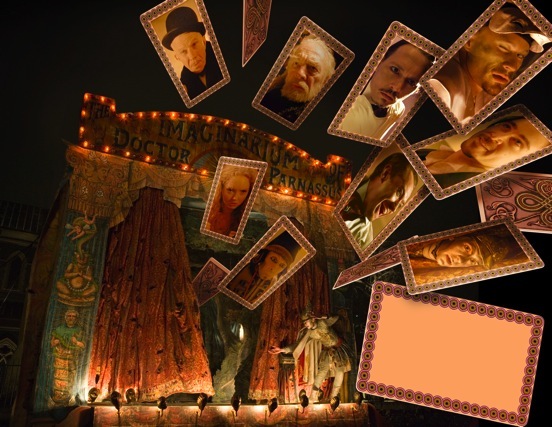The Imaginarium of Doctor Parnassus
CJSF volunteer Mike Hoff reviews Terry Gilliam's newest film at the 28th annual Vancouver International Film Festival....

“The Imaginarium of Dr. Parnassus” is Terry Gilliam’s tour de force of the imagination: creatively limitless, fantastically obscure, overwhelmingly preposterous, yet visually delightful. Both humourous and profound, the riveting storyline kidnaps us and holds us hostage until the end-credits roll.
On the outset, intrusive camera perspectives directly involve the viewer in the film: first the viewer is a vagrant asleep in the street, and then a drunk trying to gain access to a nightclub (you even feel slighted as you are denied access). A traveling circus-like show is introduced, providing a stark contrast between the greys of “our” modern London and the vivid colours and antiquated presentation of the absurd imaginarium. The result is the palpable feeling of being excised from life as we know it and initiated into an arcane world.
The film proceeds to introduce the mysterious and often inebriated Dr. Parnassus (a convincing Christopher Plummer) and his small troupe of traveling players. The nomads save Tony Shepard from apparent death (Heath Ledger, turning in a necessarily ambiguous final performance), and Tony elects to return the favour through contributions to the viability of the imaginarium. Upon entering the imaginarium, Dr. Parnassus facilitates the exploration of a customer’s imagination; Gilliam uses this reality transformation to introduce Johnny Depp, Jude Law, and Colin Farrell as different embodiments of Tony’s duplicitous personality. It is Depp’s show-stealing performance which illuminates the ambiguity and ambivalence of Tony, the imaginarium, and consequently imagination itself.
The subtle humour interlaced throughout the film is marked by the introduction of the devil, “Mr. Nick” (Tom Waits, simultaneously wooden and hilarious as only Waits can be). Waits also brings a very human side to the Prince of Darkness, whose main role is to delineate the roles of other characters. In his shadow, Tony’s archangel-like quality of falling from grace becomes evident, and a battle for souls with Dr. Parnassus suggests the epic battle of good vs. evil, magic vs. reality, or even belief vs. science.
Philosophical at heart, the film suggests that existence may simply be a story, or a dream. But what happens if the story, or dream, ceases? One captivating scene involves Mr. Nick fatalistically refuting such notions through physical proof of time passing regardless of audible speech. A broken wristwatch at the beginning of the film, and later a road with no beginning or end inspire ideas that space and time certainly exist, but our existence within these constructs is uncertain. Finally, we are left questioning whether what we see is simply the yields of imagination, or even madness.
The film touches on a multitude of themes: existence, greed, power, mortality, youth, sexuality, responsibility, karma, religion, freedom…but above all the value of trust in the shadow of perpetual duplicity. The mirthful Verne Troyer quips, “Telling the truth; always a bad idea” Tony’s duplicity is emphasized by Law, Depp and Farrell’s contributions to the character. But even the devil himself is extended a degree of trust, suggesting that while no one is completely infallible, even the worst of us should be extended this basic need.
